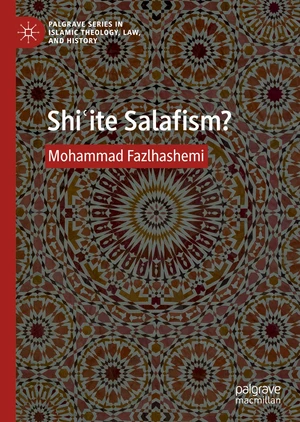This book is about the emergence of a stream of ideas in the 1930s and 1940s within Imamiyya ShiÊ¿ite context, focusing primarily on the thought of ShariÊ¿at Sangelaji (1891â1944), who harshly criticized a number of basic theological beliefs within Imamiyya ShiÊ¿a. Accusing them of polytheism and superstition on account of their ideas about shifaÊ¿a intercession, and their pilgrimage to the graves of the ShiÊ¿ite imams, he also criticized the belief that the twelfth imam al-Mahdi has been living in covertness since the 9th century, and that a number of historical figures will be resurrected upon his return to assist him in the final battle against the evil. Taking at once a theological and historical approach, Mohammad Fazlhashemi investigates whether Salafist mainstreaming thoughts, despite its hostile attitude towards ShiÊ¿a Islam, had any influence over ShiÊ¿ite theology. He explores whether and what components of the Salafist tradition of ideas have been adopted by theologians within Imamiyya shiÊ¿a or whether in fact whether these changes were the result of an internal theological tug-of-war within the Imamiyya ShiÊ¿a that was influenced by the interwar modernization efforts. Fazlhashemi examines the characteristic features of this flow of ideas, its sources of inspiration, the reception of its thought, and the imprints it made on theological currents within Imamiyya shiÊ¿a in Iran during its time and time thereafter.
Price history
Nov 21, 2022
€135.14

